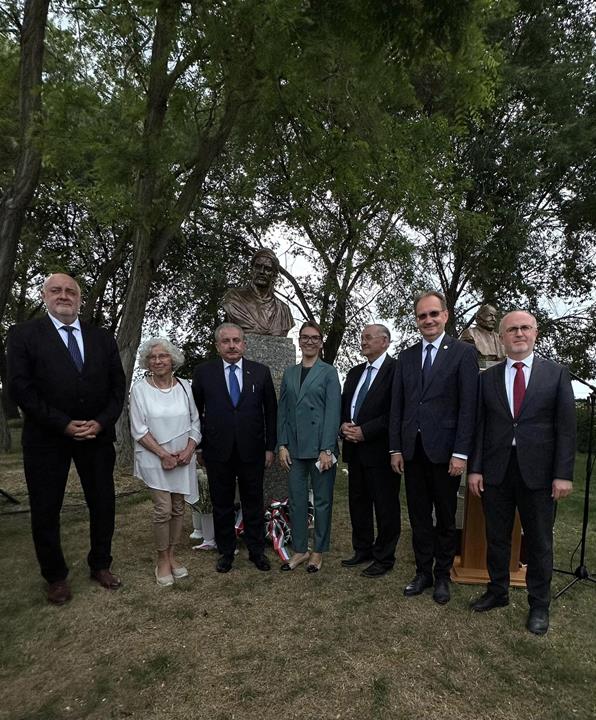PHOTOS: World-known Medieval Turkish poet’s statue unveiled in Hungary

Hungary and Türkiye are bonded by a friendship with deep roots and a strategic alliance, the foreign ministry’s deputy state secretary for security policy said at the unveiling of a statue of Turkish poet Yunus Emre in Lakitelek, in central Hungary, on Saturday.
The 13th century poet had a great impact on Turkish literature, he used a language and vocabulary that was “close to the people” and contributed to the development of the Turkish language, said Henrietta Balajthy.
Hungary and Turkiye commemorate the 100th anniversary of establishing diplomatic ties “in a due manner” by elevating their partnership to a special strategic level and with a Hungarian-Turkish cultural season, she said.

Turkish Ambassador Gulsen Karanis Eksioglu said the new statue is a symbol of good morals and humane human values. The peoples of Hungary and Turkiye that share a common history are linked by common bonds of friendship, she said, adding that “Yunus Emre’s philosophy can be found both in the Hungarian people’s spirit and in Turkish poetry”.
Read also:
- ‘New airline’ carries passengers from Budapest to this exotic Mediterranean metropolis – Read more HERE
- Attention: Change in Turkish low-cost airline flying from Budapest to Istanbul










First of all, Yunus was a Sufi dervish. He was describing divine love in his poems. He masterfully expressed the most complex subjects or difficult-to-describe emotions and the truth in a simple language that everyone could understand. He was a very humble person and loved by all. And another important point of his poems is he used original Turkish words and phrases rather than Persian and Arabic originated ones which was the common practice of other poets in his term.